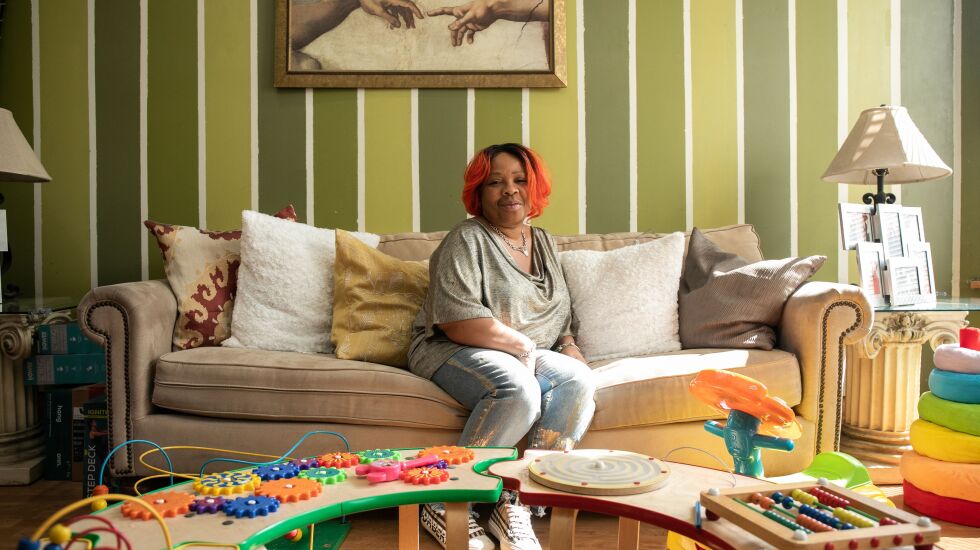
Last winter, Katherine Parks noticed that her 10-year-old furnace was struggling to heat her two-story Austin home.
With her home’s large drafty windows, her thermostat wouldn’t budge above 70 degrees on cold days. On top of that, she was paying around $600 a month on her gas and electric bills — the majority going for gas.
The cost of replacing a gas furnace was daunting for Parks, who runs a home-based daycare.
So when the Chicago nonprofit Elevate approached her this year and offered to “decarbonize” her Victorian-style home by replacing her natural gas furnace and water-heating sources with newer electric units, she decided it was an appealing offer that she hopes will save her hundreds of dollars a month.
“I’m hoping it will help me lower the cost of my utility bills and keep my home nice and warm and efficient during the wintertime,” said Parks, 52. “I’m looking forward to enhancing the quality of my home.”
Elevate officials said Thursday that they hope to do the same for more Chicagoans — about 100 homes total in low-income communities over the next two years. A big chunk of the program’s funding is coming from a $3.15 million grant from a foundation run by banking giant Wells Fargo.
That grant won’t cover the entire cost, but others, including electric provider ComEd, pitched in additional dollars, according to Elevate.
It cost about $65,000 to convert Parks’ home. Because she rents out her second floor, that money covered the replacement of two furnaces and two hot-water heaters. The gas furnaces were replaced by a pair of air-source heat pumps, which transfer air from outside and are more energy efficient than traditional home-heating sources.
Beyond the two-year program, the need is far greater than 100 homes in Chicago, said Elevate Chief Executive Anne Evens.
Hundreds of thousands of homes in the city will need to eventually be converted from natural gas as Illinois phases out fossil fuel energy sources that contribute to global warming. For now, Elevate is focused on low-income communities, such as Austin, to begin that transition as residents there are the least able to afford the switch.
It’s a start that “will allow us to address climate change and the disparities facing diverse communities in Chicago,” Evens said.
Under the program, Parks wasn’t required to pay for any of the conversion.
Rep. Jesus “Chuy” Garcia (D-Ill.), who attended the announcement of the program at Parks’ home, echoed the sentiment.
“Housing is a human right, and so is the right to live in safe, healthy communities with access to clean air and clean water,” Garcia said. “Decarbonizing our existing building stock is at the foundation of that work and one of many key fronts we need to explore when tackling the climate crisis.”
Garcia lauded climate-fighting provisions in recently passed federal laws, such as the Inflation Reduction Act. That new law includes tax incentives for those who make their homes more energy efficient while also reducing greenhouse gases they produce.
Elevate also plans to pair contractors trained through a workforce development initiative it sponsors with those who participate in the home electrification program.
For more information on eligibility go to https://www.elevatenp.org/building-electrification.
Brett Chase’s reporting on the environment and public health is made possible by a grant from The Chicago Community Trust.







